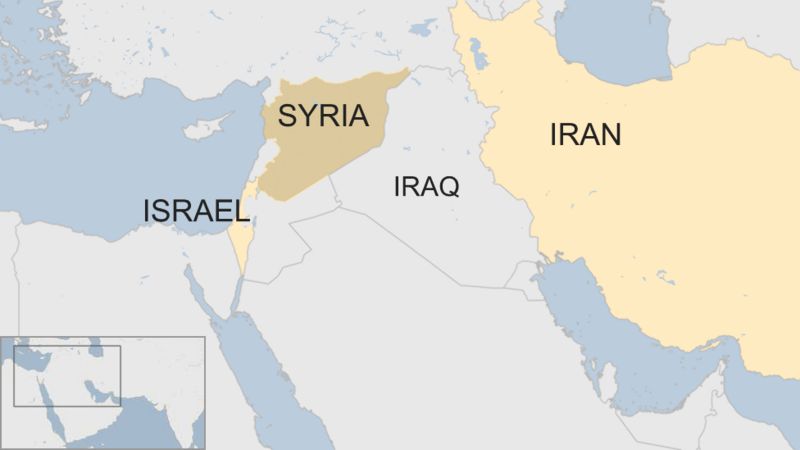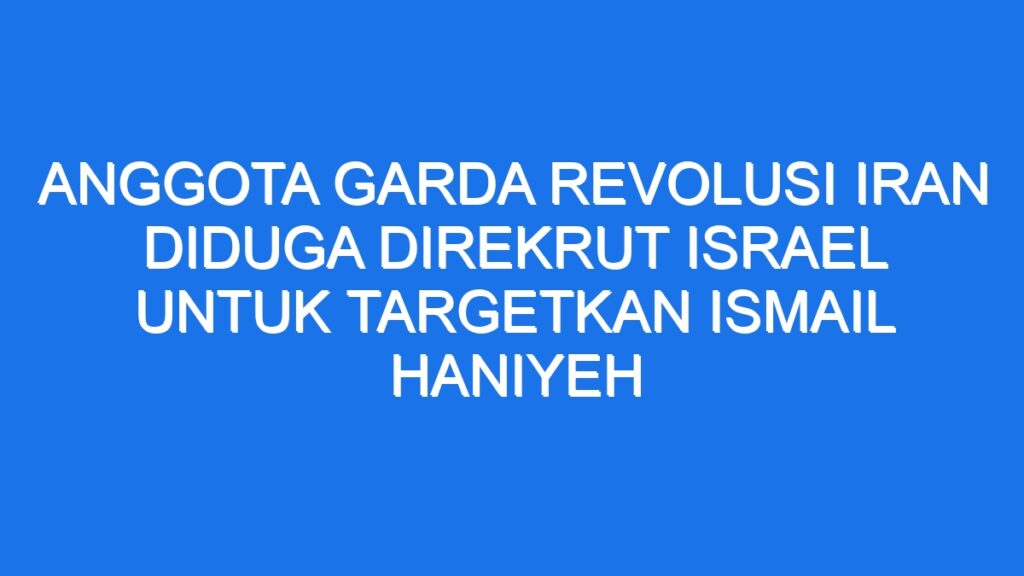Current Events and Tensions

The relationship between Israel and Iran is a complex and often volatile one, marked by a history of conflict and mistrust. Both countries view each other as existential threats, and their rivalry has spilled over into proxy wars in the region, including in Syria and Lebanon. Recent events have further escalated tensions, raising concerns about the possibility of a direct confrontation.
Recent Events and Diplomatic Interactions
The recent events have seen a significant increase in tensions between Israel and Iran. In 2023, Israel launched several airstrikes against Iranian-backed forces in Syria, targeting facilities suspected of being used to develop and store weapons. Iran has responded with threats of retaliation, and its proxies have launched attacks against Israeli targets.
- In January 2023, Israel reportedly carried out an airstrike near Damascus, Syria, targeting a facility believed to be linked to Iran’s military program.
- In February 2023, Iran’s Foreign Minister Hossein Amirabdollahian accused Israel of being behind the assassination of an Iranian scientist in Tehran, a claim Israel denied.
- In March 2023, Israel launched airstrikes against Iranian-backed forces in Syria, following a series of rocket attacks launched from Syria into Israel.
Nuclear Program and Regional Security

The potential for a nuclear-armed Iran has cast a long shadow over the Middle East, with Israel expressing deep concern and the international community grappling with the implications. This complex issue has ignited a fierce debate, with various stakeholders weighing in on the potential consequences of Iran’s nuclear ambitions.
Israel’s Concerns and Potential Consequences
Israel, a staunch opponent of a nuclear-armed Iran, views Iran’s nuclear program as an existential threat. Israel has repeatedly stated that it will not tolerate a nuclear-armed Iran and has hinted at the possibility of preemptive military action if necessary. Israel’s concerns stem from a number of factors:
- Iran’s history of hostility towards Israel and its support for militant groups in the region.
- The belief that a nuclear-armed Iran would embolden its regional allies and increase instability in the Middle East.
- The fear that Iran could use nuclear weapons as a tool of coercion or blackmail.
The potential consequences of a nuclear-armed Iran for Israel are dire:
- Increased risk of military conflict, potentially leading to a wider regional war.
- Destabilization of the region and a surge in terrorism.
- The potential for nuclear proliferation, as other countries in the region might feel compelled to develop their own nuclear weapons.
Implications for the Middle East
The potential implications of a nuclear-armed Iran for the Middle East are multifaceted and far-reaching. The region’s delicate balance of power could be significantly altered, leading to increased tensions and a heightened risk of conflict. The presence of a nuclear-armed Iran could also embolden other regional actors, such as Saudi Arabia, to pursue their own nuclear ambitions.
- An arms race could emerge, further destabilizing the region.
- Increased risk of nuclear terrorism, as extremist groups could potentially acquire nuclear materials or technology.
- The potential for a nuclear conflict, with devastating consequences for the region and the world.
International Sanctions and Regional Alliances
The international community has imposed a series of sanctions on Iran in an attempt to curb its nuclear program. These sanctions have had a significant impact on Iran’s economy, but they have not been successful in halting the nuclear program entirely.
- The effectiveness of sanctions in preventing Iran from developing nuclear weapons remains a subject of debate.
- The role of regional alliances, such as the Gulf Cooperation Council (GCC), in countering Iran’s influence is also crucial.
- The GCC, composed of six Arab states in the Persian Gulf, has expressed deep concern over Iran’s nuclear ambitions and has sought to strengthen its military capabilities in response.
Perspectives of Different Stakeholders
The implications of Iran’s nuclear program have generated diverse perspectives among different stakeholders, including regional powers, international organizations, and civil society.
- Regional powers, such as Israel, Saudi Arabia, and the United Arab Emirates, have expressed deep concern over Iran’s nuclear ambitions and have advocated for strong measures to prevent Iran from developing nuclear weapons.
- International organizations, such as the International Atomic Energy Agency (IAEA), have played a critical role in monitoring Iran’s nuclear program and have called for transparency and compliance with international regulations.
- Civil society groups have also voiced their concerns about the implications of Iran’s nuclear program, arguing that it could exacerbate regional tensions and increase the risk of conflict.
Political and Social Dynamics: Israel Iran News

The political and social landscapes of Israel and Iran are vastly different, shaped by unique historical experiences, religious beliefs, and cultural identities. This stark contrast fuels a complex relationship marked by mistrust, ideological clashes, and recurring tensions. Examining the internal dynamics of both nations provides a crucial lens for understanding the broader geopolitical landscape of the Middle East.
Political Systems and Ideologies, Israel iran news
Israel and Iran are governed by fundamentally different political systems and ideologies. Israel operates as a parliamentary democracy with a multi-party system, while Iran is an Islamic Republic governed by a complex system of religious and political institutions.
- Israel’s political system is based on the principles of individual rights, freedom of expression, and democratic elections. The country has a vibrant and diverse political landscape, with numerous parties representing a range of ideologies, from liberal to conservative. The Knesset, Israel’s parliament, holds significant power, electing the Prime Minister and overseeing the government.
- Iran, on the other hand, operates under a unique system that blends religious and political authority. The Supreme Leader, an Islamic cleric, holds ultimate power, wielding influence over the judiciary, the military, and the country’s foreign policy. The President is elected through a multi-candidate process, but his authority is limited by the Supreme Leader and the Guardian Council, a body of religious scholars who oversee elections and legislation.
The ideological differences between the two nations are equally pronounced. Israel’s political discourse is largely shaped by secular values and a strong emphasis on national security. The country’s founding principles, based on Zionism, emphasize the right of the Jewish people to self-determination and the establishment of a Jewish state in the land of Israel.
“The State of Israel will be open to Jewish immigration and absorption from all parts of the world, and will endeavor to develop the country for the benefit of all its inhabitants.” – Israel’s Declaration of Independence, 1948
In contrast, Iran’s political ideology is deeply rooted in Shia Islam, emphasizing religious principles and social justice. The country’s Islamic Revolution in 1979 led to the establishment of an Islamic Republic, with the goal of creating a society based on Islamic law and values.
“The Islamic Republic of Iran is a government based on the belief in God and the divine mission of prophethood, with the objective of establishing the rule of God on Earth.” – The Iranian Constitution, 1979
The stark ideological differences between Israel and Iran are a major source of tension. Israel’s emphasis on Jewish identity and security is often seen as a threat by Iran, which views itself as the defender of Islam and the Palestinian cause. This ideological divide has fueled decades of mistrust and conflict, making reconciliation a challenging prospect.
Israel iran news – The escalating tensions between Israel and Iran, a dangerous game of brinkmanship, are a stark reminder of the fragility of peace in the region. While the world focuses on this volatile situation, a different kind of emergency unfolds in the northeast Ohio emergency , where communities grapple with the devastating consequences of environmental disasters.
This local crisis, while seemingly far removed from the international stage, highlights the interconnectedness of our world and the urgent need for global cooperation to address both immediate and long-term threats.
While the world watches the escalating tensions between Israel and Iran, a different kind of crisis is unfolding in Northeast Ohio. A northeast ohio emergency is forcing residents to grapple with the harsh realities of climate change and infrastructure failures.
Meanwhile, the Israeli-Iranian conflict continues to simmer, a stark reminder that geopolitical instability can manifest in both overt military threats and silent, creeping disasters.
